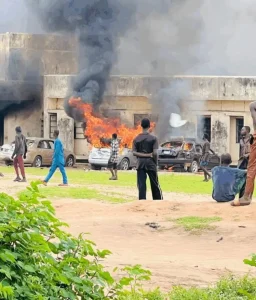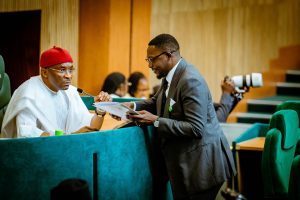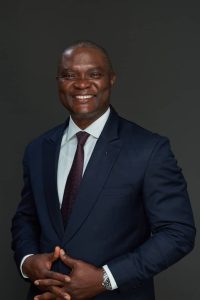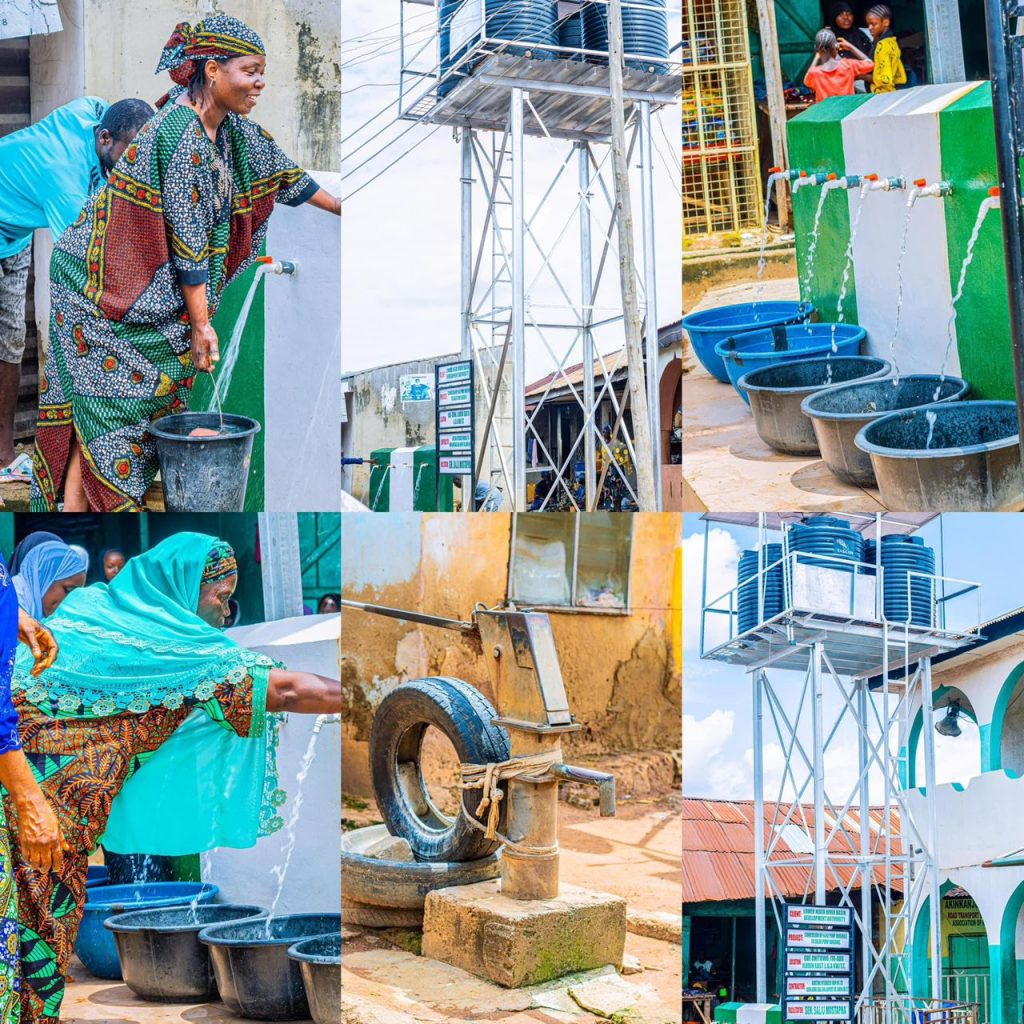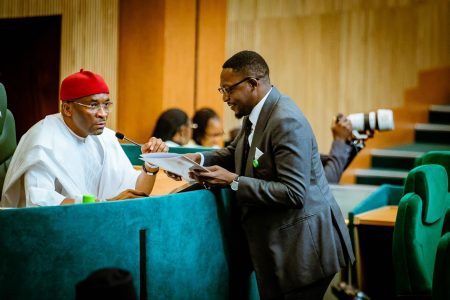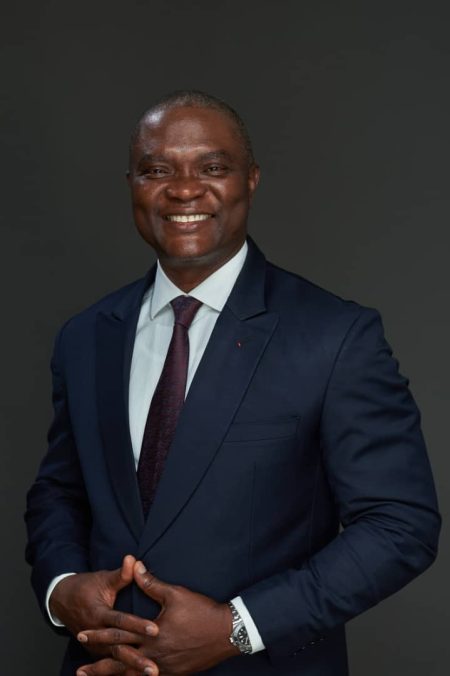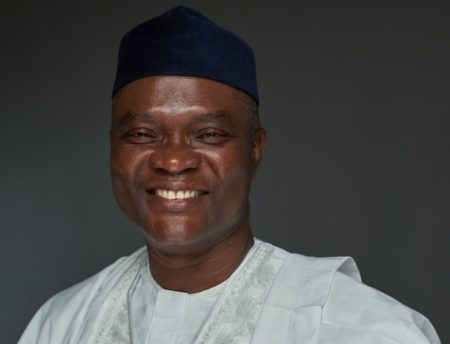By Adam Sanusi
In many parts of rural Nigeria, water is not just a resource; it’s a lifeline. For decades, communities have relied on hand pump boreholes to access this essential commodity, often at the expense of their health and time. However, with the ongoing conversion of 29 hand pump boreholes to solar-powered water systems across Kwara Central, this struggle is finally starting to ease. These projects are not only bringing clean water closer to the people but also transforming the very fabric of daily life in these communities.
The initiative spearheaded by Senator Saliu Mustapha reflects a broader commitment to social change and community development. In areas like Ode-Onituwo, Itadu in Ilorin East; Ode-Lawule, Isale Banni in Ilorin West; opposite Onileke Mosque, Okesuna in Ilorin South; and Olodo Community, Okeweru-Yowere 2 in Asa Local Government, this transition from manual to motorized water systems is more than just a convenience—it’s a revolution for the people.
In most of these communities, the responsibility of fetching water traditionally falls on women and young girls. The daily trek to operate manual pumps is time-consuming, physically demanding, and often exacerbates health issues, such as chest pain and fatigue. This burden, for generations, has robbed many of their time and energy—time that could otherwise be spent on education, work, or family care. But now, with solar-powered systems in place, women and girls can focus on other aspects of their lives.
The time saved, though easily overlooked, is monumental in its impact. A woman who no longer spends hours pumping water can dedicate those hours to farming, small business activities, or even simply resting. Children can stay in school longer, rather than rushing home to help with water collection. These seemingly small changes accumulate into a larger shift toward improved economic productivity and personal well-being.
It’s not just about convenience. The health benefits of access to consistent and clean water cannot be overstated. In communities like Ode-Lawule in Ilorin West and Olodo Community in Asa, residents previously had to rely on unreliable water sources that were often prone to contamination. With solar-powered boreholes, they now have access to a safer and more sustainable supply of water. This reduces the risk of waterborne diseases and improves overall hygiene, fostering healthier families and communities.
Moreover, the environmental impact of solar energy aligns with global sustainability goals. By moving away from systems dependent on the unstable power grid or diesel-powered generators, these communities are not only improving their own living standards but also contributing to a cleaner environment.
The ripple effect doesn’t stop at health and time savings. Access to a reliable water source is also key to the growth of local economies. Farming communities now have the opportunity to expand their agricultural activities. With consistent water, crops can thrive, and farmers no longer have to rely on unpredictable rainfall or expensive alternatives like water tankers. This could mark a turning point for small-scale farmers looking to move from subsistence farming to commercial activities, thereby improving their livelihoods.
Importantly, many a community known for its entrepreneurial spirit, access to water means a boost to local businesses. Laundry men, food vendors, and other small businesses that depend on water for daily operations now have more control over their activities. It’s a small, vital part of the ecosystem that keeps these rural economies going, and it’s now being strengthened.
Of course, projects like these do not happen in a vacuum. Behind every development initiative is a story of leadership and political will. While many politicians focus on short-term solutions, Senator Saliu Mustapha has taken a different route. His decision to invest in solar-powered boreholes highlights a forward-thinking approach to infrastructure. Rather than merely providing handouts, he is facilitating long-term solutions that have the potential to outlast his tenure in office.
But as with all political projects, there are critics. Some argue that more should have been done sooner, or that resources should be spread across different sectors. However, one cannot ignore the tangible benefits these communities are already reaping. The conversion of these boreholes is not a flashy, one-time event—it is a sustainable investment in the people’s future.
As the conversions progress, the voices of gratitude from the communities are growing louder. Residents acknowledge the transformative impact of this project as their communities had struggled for years thus, this solar-powered borehole has brought them relief. They are healthier, happier, and finally free from the physical strain of using manual pumps.
Several others have echoed these sentiments, praising the initiative not just for its immediate benefits but for its long-term promise. This is more than just water; it’s about their future, about creating a better life for the people.
These are the kinds of changes that can turn the tide for rural communities—where one borehole can make the difference between scarcity and abundance, between struggle and progress.
Adam Sanusi writes from Ilorin.



![Man is not built to sexually be with one woman’ – 2Face Idibia [VIDEO]](https://kwaraexpress.com/wp-content/uploads/2025/07/IMG_2094-259x300.jpeg)
